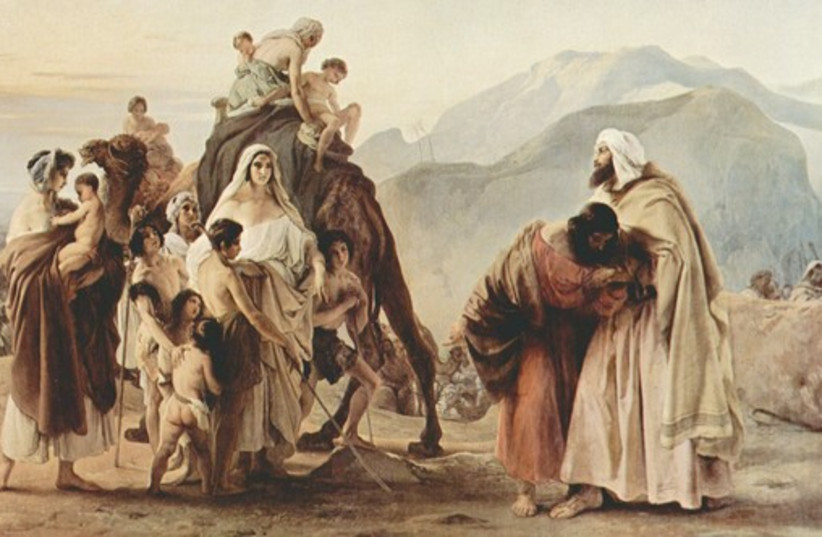My father once explained the character of the biblical Isaac by citing Abraham Mendelssohn.
He was a successful banker whose father was the great philosopher Moses Mendelssohn and whose son was the great composer Felix Mendelssohn. Late in life he lamented, “The first half of my life I was known as the son of my father; the second half of my life I was known as the father of my son.”
Isaac was the son of Abraham, founder of the Jewish faith and father of Jacob, source of the 12 tribes who became Israel. The two most notable events in Isaac’s life are times when he was acted upon, not the active agent. The first is the akedah, when his father takes him up Mount Moriah as a sacrifice, and the second is when his son Jacob, in collaboration with Rebecca, Isaac’s wife, deceives him and takes the birthright from Esau. Even when next week’s parasha begins with “This is the legacy of Isaac,” it goes on to say “Abraham begot Isaac,” suggesting that his legacy is his father.
What are we intended to learn from Isaac’s life? Isaac had a critical contribution to make that threads through several aspects of his life. Isaac is the conservative principle, the preserver, the paradigm of continuity. Abraham has created something new. The question is whether the innovation of Abraham will endure. In ways both overt and subtle, Isaac consolidates what has been created. As we are living in an age when everyone is preoccupied with disruption and innovation, it is easy to lose sight of the importance of preserving what previous generations have forged.
Isaac instantiates the idea of creating a legacy of unbroken coherence.
In Chapter 26 are contained two of the features of Isaac’s life that highlight his character. Isaac re-opened the wells that were first dug by his father Abraham (26:18). This is a powerful symbol of the importance of continuity. The wells had been stopped up by the Philistines, but rather than dig new ones, Isaac restores the old. A few verses earlier God instructs Isaac not to go down to Egypt. Isaac is the only patriarch who does not leave the land of Israel. Abraham has been led to a new land. His son proves that his father’s choice can nourish a life.
Isaac is also the only one of the patriarchs whose name does not change. Abram becomes Abraham.
Jacob becomes Israel. Isaac is always Isaac. One explanation of this is that God names him, and therefore the name need never change. Yet it is also consistent with Isaac’s character, which is steady, conservative, a life of preservation, not innovation. Even his marriage is traditional in the sense that it is arranged, and unlike Jacob and Abraham, Isaac does not have a concubine.
Surely someone of Isaac’s stature has some innovation? Yes. Mincha, the afternoon service.
Isaac goes into the field lasauch basadeh.

The word lasuach is a hapax legomenon, a word used only once in the entire Tanach. Rashi connects it to Psalm 102:1, and says it is the language of prayer. Rashi is abbreviating a Talmudic discussion (Ber. 26b) that interprets the word to mean conversation (as in modern Hebrew – sichah). With whom could Isaac be conducting a conversation when he is alone? It must be a dialogue with God.
Even Isaac’s innovation is a symbol of continuity. God initiated the dialogue with Abraham and Isaac, in his redoubtable fashion, ensures that it will be a dialogue through the ages. Isaac keeps his name, his land, his family’s inheritance and connection to God. Abraham and Jacob may have burned brighter, but Isaac was keeper of the flame.
The writer is Max Webb Senior Rabbi of Sinai Temple in Los Angeles and the author of David the Divided Heart. On Twitter: @rabbiwolpe.
